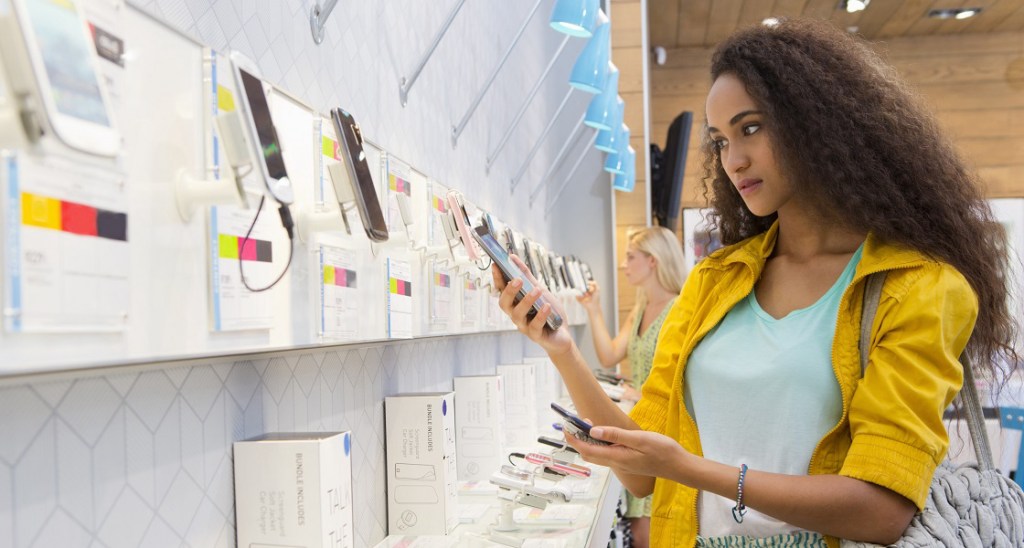Transitioning to a more circular business model could not only help you drastically to reduce your own environmental impact, but it could also empower your customers to play the active role that they increasingly crave – thereby increasing the attraction they feel towards your brand.
Amid the health concerns and business uncertainty that came as a result of the pandemic, our latest GfK Green Consumer Europe report revealed some positive news evidencing a significant growth in consumer interest around sustainability.
According to the report, Eco Actives – which describes shoppers who “feel responsible and are making significant steps to reduce their plastic waste, and know which companies have a genuine environmental concern” – now represents 24% of consumers across the 10 European countries studied (ranging from 18% in the Czech Republic to 38% in Germany). For some of these countries, Eco Actives have shown double-digit growth in numbers since 2019.
This shift is a direct result of the disruption and uncertainty brought about by the pandemic, which has encouraged people not only to think hard about what really matters to them but to recognize the need to take responsibility and action as individuals – leading them to flock to brands operating circular business models.
In spite of all the uncertainty last year, this driving force for environmental action not only survived the crisis, it’s been propelled by it.
If this trajectory continues, by 2025 over 40% of consumers will adjust their buying behavior to become more involved in playing their part in the green revolution, representing a whopping $860 billion of sustainable spending power. It’s clear that ignoring this shift in sentiment could be a damaging oversight for businesses.
Minimizing plastic waste is no longer enough
The sentiment shift around sustainability towards circular business models has not just been in the number of consumers interested in sustainable practices, but also in the nature of change they want to see.
Previous GfK Green Consumer Reports have tracked consumer interest in eco-friendly behavior as being largely centered around minimizing plastic waste. Now, interest is turning to other areas. Eco Actives are increasingly aware of the environmental impact of every part of their lifestyle – this could mean buying locally, looking for carbon-neutrality, reading labels, and checking items to see whether they are made from recycled materials or not.
GfK research found two in ten people believe individuals can make the biggest difference in “controlling and limiting the damage humans are doing to the environment”, while four in ten believe manufacturers have this power. This showcases the importance of brands operating circular business models to work with their consumers to reduce collective environmental footprint.
Circular business models resonate with consumers’ desire to act
Circular business models empower both consumers and businesses to be more environmentally responsible. These models reduce waste by helping customers to re-use, re-fill, share, donate or repurpose and recycle old materials into new ones. By keeping consumers, brands, products, and materials in a continuous cycle of purchase-and-reuse, there is a double environmental benefit – reducing not only the amount of landfill from consumers but also the amount of raw material needed for manufacture.
The real-life success of circular business models
Online fashion retail is one sector really benefiting from a high level of innovation in circular business models. Take the pioneering zero-waste clothing company Mud Jeans as an example. Mudd encourages consumers to lease jeans and return worn pairs for recycling. Similarly, For Days sells recycled, organic, and carbon-neutral t-shirts, allowing customers to send back worn items in exchange for new ones by using a system of ‘swap credits’.
By encouraging reciprocal action, these brands relay the message that their customers are more like partners than end-point consumers. “We wanted to figure out a way to make customers feel like they’re in the driver’s seat, but they’re still incentivized to do the right thing, which is to return stuff as it wears out,” shared For Days founder Kristy Caylor.
For Days takes the impact of its circular business model even further, by offering customers proof of results via data. It showcases how much CO2 and water has been saved, how much energy has been used, and the amount of pesticides that have been avoided through buying their clothing. Collectively, this transparency opens a dialogue and increases trust, which satisfies consumer desire to make an impact more deeply than one-way models.
Here is another prime example: by creating biopolymers from organic food waste that can replace traditional petroleum plastic, Full Cycle Bioplastics is tackling two of our biggest environmental problems: food waste and plastic pollution. As a fully circular business model company, Full Cycle Bioplastics offers their customers (also described as partners) end-to-end solutions that provide more regular touchpoints and help to increase loyalty.
“Our customers come to us because they’re aware of the global food waste and plastic pollution problems, and they want to join the Circular Revolution,” says Full Cycle Bioplastics Co-Founder and Co-CEO, Jeff Anderson. “They are waste haulers looking to valorize4 their waste, or waste producers looking to transform their own waste into a sustainable solution. Other customers have the infrastructure to collect and sort waste and are looking to license the technology. And some customers are looking to buy PHA to replace petroleum-based plastic in their supply chains. We partner with all of them.”
The sustainability trend
To remain relevant in the coming years, brands must monitor and understand shifts in consumer attitudes and behavior around sustainability, as well as follow the fast pace of innovation into zero-waste manufacturing solutions. GfK’s Sustainability Concern and Action Report can help you to understand and anticipate consumer needs and sector trends, enabling you to find the most appropriate way to adopt circular business model practices.
FAQs:
What is the circular economy; why is it important?
A circular economy is an economic system aimed at eliminating waste and the continual use of resources in order to minimize or negate the environmental impact of consumerism.
How does the circular economy work?
Circular systems take every step in a product’s lifecycle – origin materials, manufacture processes, consumer interaction, and waste materials – and strive to reuse, recycle or repurpose as much as is possible.
How to create a circular economy?
Consider actions such as repairing products, using recycled or renewable materials and packaging, and stretching the product life cycle. Aim for zero waste by making sure that what cannot be reused or repurposed is recycled or composted.
What is Waste valorization?
Waste valorization is the process of taking waste and changing it into constituent parts that can be utilized and have value beyond the cost of the energy needed to process the transformation.
What is a green consumer?
A green consumer is a person who is concerned about the impact of their lifestyle on the environment and wants to buy from brands that take real and measurable steps to have a positive or neutral impact.
How can GfK help my business with data and research on the circular economy and green consumers?
GfK holds global data that can provide detailed insights and actionable recommendations to help you understand your consumer wants and needs, now and in the future, to enable your business to adjust to the circular and green economies.



